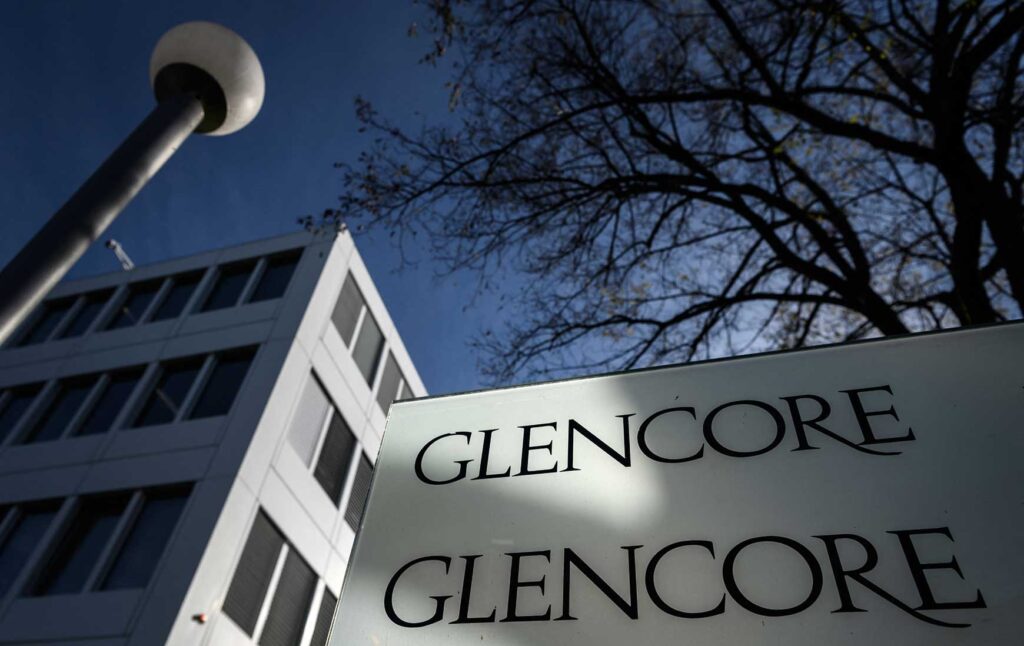In the West, often when the subject of corruption is brought up, particularly Africa and corruption, it is seen as an African problem, something that happens there due to dodgy businesses and corrupt politicians. The dark continent where grubby money rules is an image that many have when corruption and Africa are mentioned, while the images of the corridors of power in Europe sit in stark contrast.
A passing glance at statistics on the subject would seem to support this idea, with 11 of the 23 most corrupt countries in the world coming from Africa, according to the Corruption Perceptions Index (CPI) 2023 rankings, based on survey scores and expert assessment. At the other end of the table, countries from Europe dominate the rankings of the least corrupt.
Yet this ignores the often crucial role companies with headquarters in London, New York, or Zurich play in immorally extracting wealth from African societies.
“There’s clear evidence now, certainly in the extractive industry, obviously one of the big industries in Africa, that we are seeing elements of corruption that frequently lead to companies based in the United States (US), in the United Kingdom (UK) or elsewhere. So, it’s a problem, and it’s a huge problem,” says Anneke Van Woudenberg, executive director of Rights and Accountability in Development (RAID), a UK-based NGO focused on exposing corporate misconduct, and environmental and human rights abuse.
Often it is not simply an imperfect coming together of two organisations open to corruption but a huge corporation based in the Global North, listed on several stock exchanges in different jurisdictions and with annual revenues larger than the GDPs of the African countries they look to operate in.

“The actual heft of these companies means they power their way through these deals and get their way. I think that this dynamic is an important part of Global North companies operating in Africa. I think that needs to be understood,” says Helen Taylor, senior legal researcher at Spotlight on Corruption, an NGO aiming to shine a light on the UK’s role in corruption domestically and abroad. “It’s about [how these companies] can call the shots and the kind of inequality on that playing field.”
Mineral extraction is certainly a sector that RAID has been monitoring closely, and in November 2022 Swiss giant Glencore was the latest to plead guilty to corruption surrounding its mining activities in Africa, through various subsidiaries.
“West Africa Intermediary Company was a Nigerian company used by Glencore and its subsidiaries to pay bribes to government officials in Nigeria and other countries in West Africa, to obtain oil cargoes and other business advantages for Glencore,” said the US Department of Justice in its statement of fact that Glencore admitted to as part of its plea with authorities there.
Glencore may be the western-based mining conglomerate in the headlines for corruption now but it is far from the only one operating like this. “Is what Glencore did something that we’re seeing by other entities in Africa? Of course, the answer is yes, I don’t think Glencore was unique,” says Van Woudenberg.
One reason she’s so convinced that Glencore is not unique is the way the culture of doing business in Africa is regarded by many corporations in the West, where corruption can often simply be seen as “the cost of doing business”, as Taylor explained. “There is an attitude that you can’t operate in certain African countries without paying bribes.”
Seeing corruption as simply a business expense can also extend to the fines. After Glencore pleaded guilty in a London court to corruption across five different African countries in November 2022, the UK court fined the company £281 million ($350 million), a record amount for a fine imposed on a company by the UK. Yet that same year the group’s annual revenue was also record-breaking and exceeded $250 billion.
This is not to say every western company looks to operate this way in Africa and Mathias Huter, the managing director of the UN Convention against Corruption (UNCAC) coalition warns against generalising. “There are also corporations that wish to do clean business,” he said, adding that for many of these, a corrupt business is either too costly or not an activity in which they’ll engage.” The UNCAC Coalition is a network of more than 350 civil society organisations aiming to promote transparency and accountability among the powerful through the implementation and monitoring of UNCAC and tries to enact change at the UN and government level to combat corruption globally.

For those companies prepared to engage in corrupt practices, the chances of being caught and punished are comparatively low while, as evidenced by Glencore’s record fine, the consequences are not that damaging. Taylor describes the rationale as a “risk assessment that companies take thinking they can operate with impunity, because it’s tough for law enforcement to get the evidence” to punish those responsible.
Van Woudenberg decries a lack of harsher punishments. “One of the key weaknesses here is that far too often the penalties are financial,” she says, adding that a corporation’s attitude, and willingness to engage in corruption, might be “different if a director, a CEO or senior manager faced jail time”.
There are many reasons why law enforcement is difficult in these cases, but it is not generally a lack of legislation in Global North jurisdictions, which has come a long way in recent years. Huter explained that “it’s no longer easy to move stolen money to the West” due primarily to a tightening of legislation and the work of agencies like the UK’s Serious Fraud Office (SFO) and National Crime Agency.
Having the size and resources to take on corporations like Glencore is a problem for these organisations. “[The SFO] is overstretched, under-resourced and outgunned by a company like Glencore, with its deep pockets. We see time and again law enforcement can be backed into a corner… the costs [of going after a big company for corruption] are huge as a portion of the budget,” Taylor says. The SFO has an annual budget of just under £60 million (about $77 million), and as Taylor emphasises, a company like Glencore has much deeper pockets to fight any case that the SFO may bring against them.
Beyond that, there’s also the issue of victim compensation. “What’s needed is to put the victims at the centre, when companies are prosecuted and fines are given,” says Huter. Steps are being put in place to address this issue and the SFO (which since 2014 has brought in £1.8 billion in fines from investigations into corruption across 15 countries) does now have a compensation programme for corruption fines it receives, but money typically ends up simply bolstering the coffers of the UK treasury as only £16.2 million of that has made its way back to the countries directly damaged by the corruption. This lack of redress and asset recovery has created an unwillingness to cooperate in corruption cases.
“What we’re starting to see is affected countries withhold cooperation on key investigations,” says Taylor. “Why should the anti-corruption bureau in Malawi gather evidence and share that with UK law enforcement when they’re not going to get a share back? They’re not going to see anything.”
This issue is receiving attention, though perhaps slower than desired. In Switzerland, the authorities there signed an accord with Nigeria in 2018 to help speed up the repatriation of funds embezzled from the country and held in Swiss banks. This helped facilitate the repatriation of $321 million to Nigeria that the Swiss authorities had confiscated from its banks, money that had been siphoned from Nigeria by the family of the former dictator Sani Abacha.
Unfortunately, though, as slow progress is made in the West, there are new safe havens that have emerged for corrupt finances, says Huter. Companies operating from countries with anti-corruption legislation where the West was decades ago pose a new problem. Huter’s organisation believes one solution lies in transparency, so everyone can see the true owners of any business and its operations in Africa. “Beneficial ownership transparency, where you don’t have a weakest link jurisdiction where you can have a shell company and hide ownership there,” is how he describes it.
Overall, there remains much to do to finance the fight against corruption coming from the West and enable resources recovered to be returned to those in Africa who have been damaged by corruption. It is equally important to ensure new jurisdictions with lax regulation and enforcement don’t fill any void left by a cleaning up of the West’s house.

Joe Walsh is a freelance journalist based in Johannesburg. He writes about the environment, energy and the green economy as well as politics and society for British publications, including Environmental Finance, the New Statesman and The New European.



